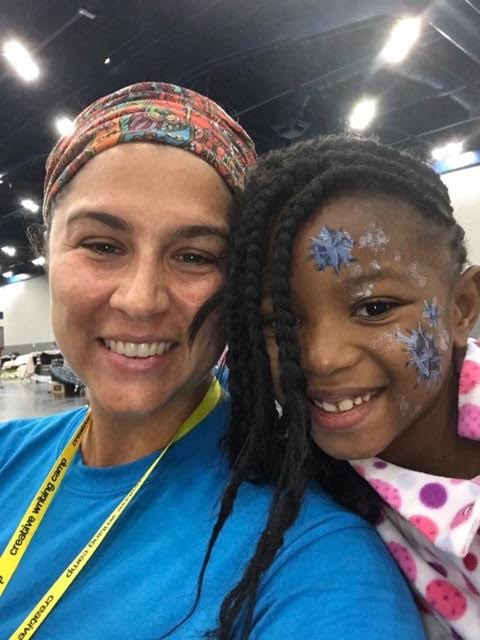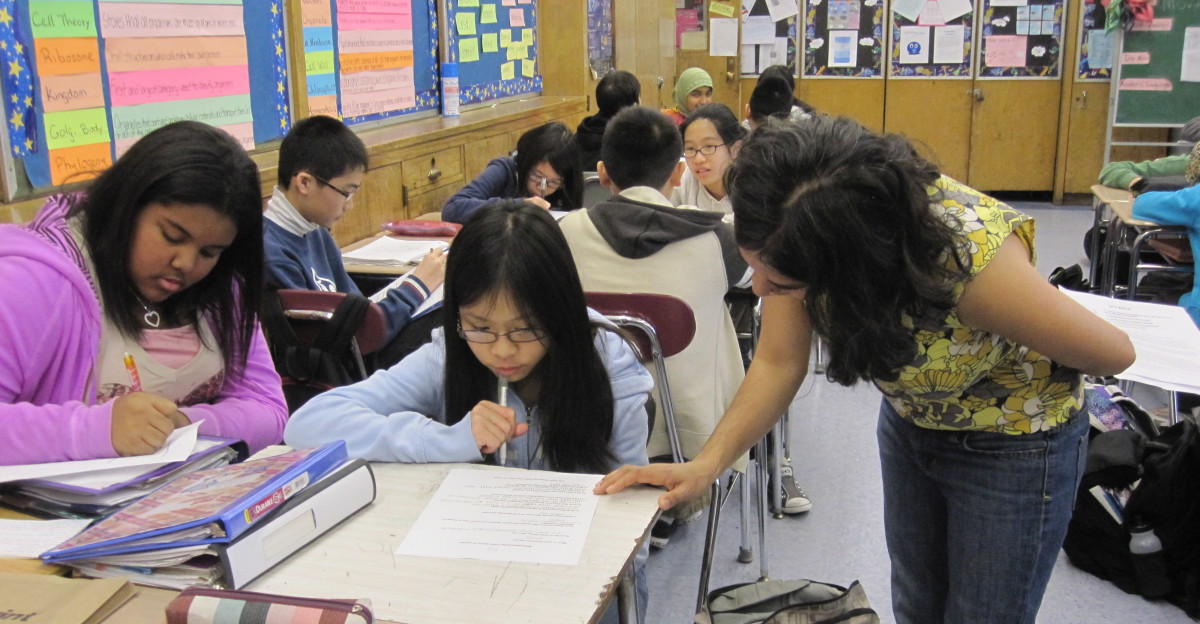I signed up to volunteer at the George R. Brown (GRB) Convention Center with Writers in the Schools right after Harvey hit Houston because I knew enough to know I would feel better at least attempting to help others. In a way, I volunteered as much (if not more) out of my need to feel useful as I did out of a response to the needs of others. Once at GRB, though, it quickly became apparent that we could be of service, both to the children we read to and wrote with and to the parents who desperately needed a break-to think, to heal, to file for FEMA, to charge cell phones, and to take stock of the major changes happening in their city, their families, and their lives.
In the wake of a disaster like Harvey, some might see reading and writing with children in shelters as secondary to responding to their families’ more basic needs, but these responses need not be viewed as competing with one another. The work Writers in the Schools did at GRB the week after Harvey helped families believe that life might just go on. In spite of everything else that was happening in our city and state that August, kids were laughing, parents were reading, and people were coming together to share stories that would shape how we understood this natural disaster and our recovery from it for the rest of our lives.
The work Writers in the Schools did at GRB the week after Harvey helped families believe that life might just go on.
We did not, as a group, have much specialized training in writing through trauma, but many of us have personal experience that informed our work in the shelter. I grew up in a chaotic home during the earthquakes and fires of Los Angeles in the 90s. As a child and teen, I used writing to survive. Today, my main question going into any teaching scenario is this: How can I best be of service here? For me, being of service at GRB meant looking for opportunities to lend a hand near the long, wrap-around lines for FEMA. I’d ask the parents in line if they’d like me to read stories to their kids for a while. The parents were grateful, the kids were engaged, and everyone seemed a little less stressed for a half hour or so. After I’d spent several consecutive days with one eight-year-old boy, he felt comfortable enough around me to describe in detail the pressure he was experiencing watching his mother’s sadness and frustration that week. “When can we go home?” he would ask me.
The boy and I built our trust through hours of make-believe story-building games. In his favorite, he was a doctor prescribing me hamburgers for some imaginary illness he was absolutely convinced I had. I was willing to eat the hamburgers as long as they were vegetables, and our back-and-forth silliness finally led to him sharing more about his real-life experience during the hurricane and its aftermath. He kept asking me if I’d be back the next day, but by the end of my time there, he was the one telling me he’d probably be gone soon.
I believe in play, and I know from my own childhood that child’s play can help kids work through even the darkest and most difficult things they might experience in life. I began my interactions with the kids at GRB with an armful of stories, colorful and happy, and always told them they could keep any book they loved. Those who wanted more followed me back to the Kids Zone where we played imagination games with the intention of building a story, however transient and temporary, in our minds if not on the page. If we could get something on the page, I showered it with compliments. Mostly, though, we sat and laughed together. You wouldn’t have known from the children’s faces that a storm had just destroyed their homes. It was only after hours of play that I heard a little stress escape, a sliver of emotion about what they’d experienced slip through.
Photo (top): WITS Program Manager Meggie Monahan and Armory. Photo by Meggie Monahan.
Cait Weiss Orcutt's work has appeared in Boston Review, Chautauqua, FIELD, Hobart, Juked, and more. Her poems were nominated for a Pushcart Prize and Best New Poets 2016, and her manuscript Valleyspeak (Zone 3, 2017) won Zone 3 Press' First Book Award, judged by Douglas Kearney. Cait has an MFA from The Ohio State University and is currently getting her PhD in poetry from the University of Houston. She is the recipient of an Inprint C. Glenn Cambor/MD Anderson Foundation Fellowship.



